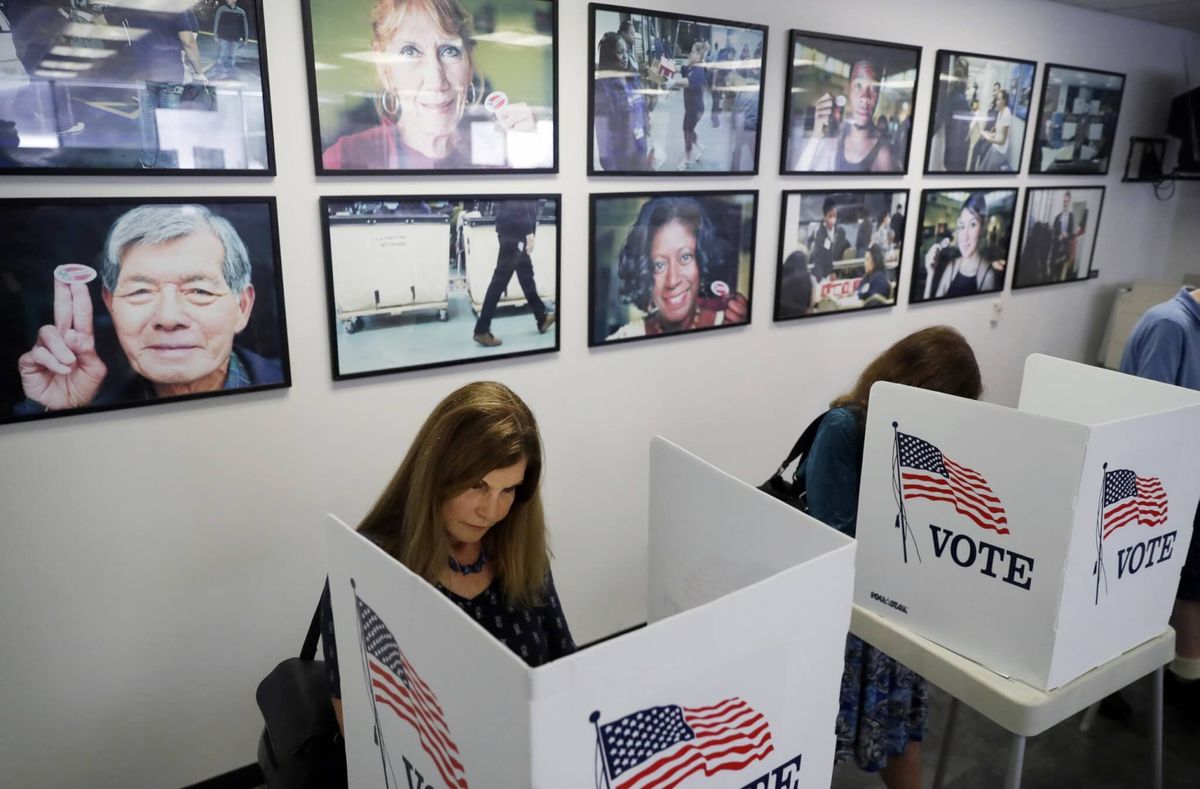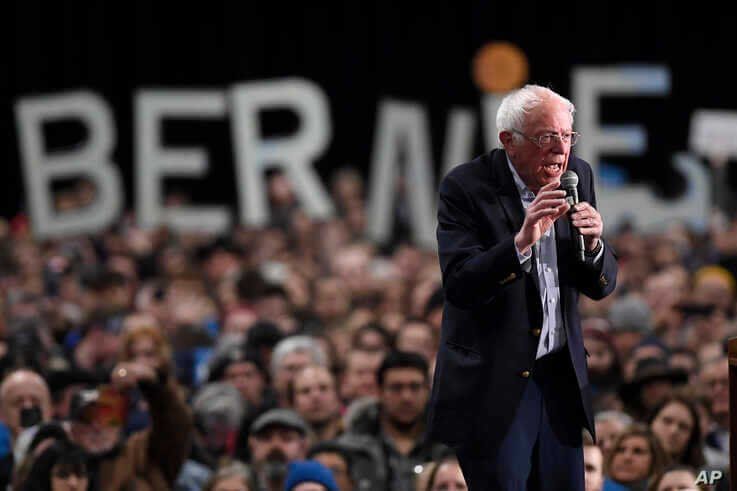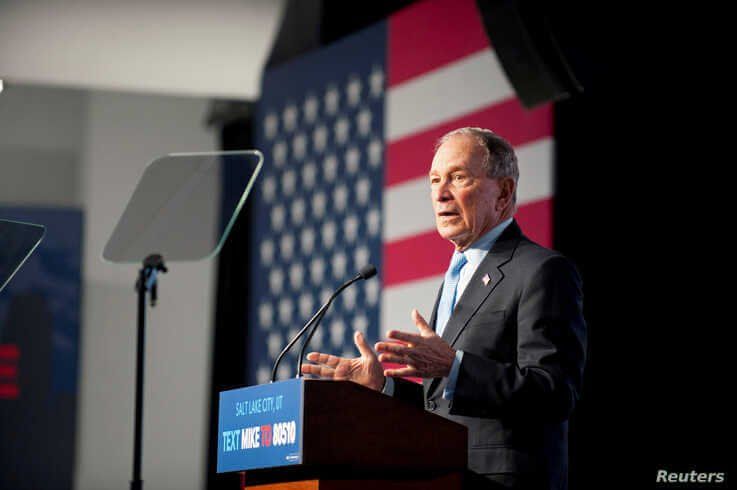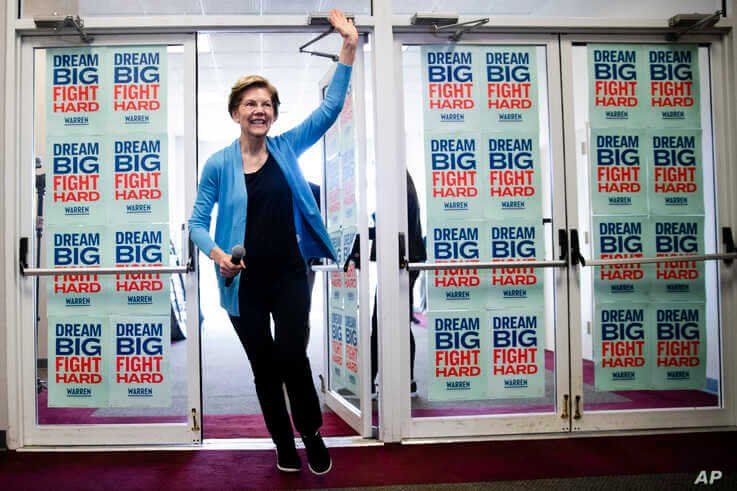
Diverse California Holds Big Super Tuesday Prize for Democratic Presidential Candidates
As voters head to the polls on Super Tuesday, the day when residents in 14 states weigh in on who will run for U.S. president, all eyes will be on California, the biggest prize.
For the first time in years, California voters matter in the primary stage of the presidential election. The state primary – with 415 pledged delegates at stake or 20 percent of the total needed to lock up the nomination – was moved up from June to March 3. And with a still-crowded field of Democratic contenders, Californians have been wooed like never before.
The Golden State has become a proving ground for both former New York mayor Mike Bloomberg and Vermont Senator Bernie Sanders, said Mark Baldassare, president and the survey director at the Public Policy Institute of California.“
The state of California is a perfect scenario for either of the candidates,” he said.
Sorry, but your browser cannot support embedded video of this type, you can download this video to view it offline.
Embed" />CopyCandidates’ California advantages
Sanders – the current Democratic frontrunner – has both name recognition and a state organization in place from when he sought the Democratic nomination in 2016, losing to former Secretary of State Hillary Clinton. He also has momentum, having done well in the much smaller states of Iowa, New Hampshire and Nevada to date. And he is seen by many young Californians as an iconoclast outside of the Democratic Party establishment.
"I think there's a strong feeling among progressive voters that the Democratic establishment should somehow be held accountable for the victory of Donald Trump and that ‘we're not going to listen to the way you've been doing it all these years,’” said Bill Carrick, a political strategist. “'We're going do our own thing because you failed.’"

Bloomberg, who has pledged to spend $1 billion or more of his $60 billion fortune on his long-shot presidential bid, has bought a lot of TV advertising, from San Francisco to Los Angeles, from Fresno to Sacramento – all which is critical to reach voters in California, the most populous state with 39.5 million residents. “
What do you do that is most effective in terms of running a statewide campaign?” Baldassare said. “It's generally the candidate who can be on television a lot.”

One Bloomberg TV spot impressed Inga Artoux, who lives in Tracy, a city in the Central Valley, and commutes to Silicon Valley. The ad shows former president Barack Obama with Bloomberg years ago
With Bloomberg’s advertising, she said, “it comes across that you can believe it, especially with Obama behind him.” Obama has yet to endorse a candidate.
Sandwiched between Sanders and Bloomberg in the polls are Senator Elizabeth Warren of Massachusetts, former Vice President Joe Biden, and former South Bend, Indiana, mayor Pete Buttigieg, who are all hoping for a breakout performance.

Diverse, liberal, haves and have nots
In many ways, California is not representative of the U.S. today: It has wealthy communities that are struggling side by side with homelessness and soaring housing costs. The state is more diverse and more liberal than most of the U.S., analysts say. Approximately half of Democratic and independent Californians voting in the primary are non-white. Many immigrants call California home. “
California is so global in terms of its population that you're going to see a real cross-section of people weighing in on who they think the Democratic nominee should be,” Baldassare said. “And if it's very close, it means that the people are divided about what the next steps are.”
So far, the California favorite seems to be Sanders who supports free university education, a $15 minimum wage and a single payer “Medicare for all” national health insurance. The Vermont senator is also Bereket Baissa’s favorite, so he’s knocking on doors for Sanders in Los Angeles.“
He's understood the position of the powerless and advocated for that person for his entire life,” said Baissa, whose parents are Ethiopian immigrants.
Wendell Veilla, who is Filipino, runs a café in Fremont, California. She can’t vote in Super Tuesday because she’s a green card holder. But she wants to get her citizenship soon, so she can vote for Bloomberg in the general election in November.“
He's very like open minded,” she said. “I can see that he's willing to listen.”
Harpreet Sandhu, executive director of the American Sikh Caucus Committee, said people in his community remember Bloomberg’s leadership after the 2001 terrorist attacks on New York City. “
Sikhs became very much victims of crime and he understood what the needs were to be able to educate local people that that crime shouldn’t happen on a certain part of the ethnic community,” Sandhu said.
New rules for Super Tuesday
One thing is certain – It may take days and even weeks to completely count California’s primary – although the networks are likely to project a winner shortly after the polls close. Republicans and independents can vote in the California Democratic primary, and, for the first time, people can show up on Election Day, register to vote and then vote.
Add to that the record number of registered voters – more than 20 million – and it may take a while to figure out what actually transpires in California on Tuesday.
 Sanders’ Praise of Castro Raises Foreign Policy ConcernsNext PostUS Judge Rules Head of Immigration Agency was Unlawfully Named
Sanders’ Praise of Castro Raises Foreign Policy ConcernsNext PostUS Judge Rules Head of Immigration Agency was Unlawfully Named
THE REAL STATE OF THE UNION TONIGHT AT 7PM ET.
Record Stock Market highs. Border secured. Cartels crushed. “America is back.” This is MUST-SEE TV. Wall-to-wall LIVE team coverage starts TUESDAY at 7PM ET on the RAV network!







